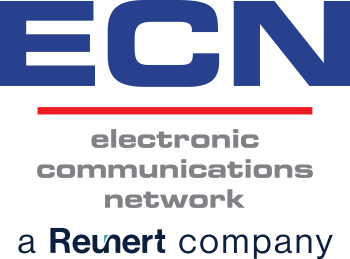If you’re looking to install a quality business telephone system or replace your old-school switchboard, then you’re likely in the market for a PBX system. You’ve started researching the product but want something that gives you an easy-to-understand breakdown of the Private Branch Exchange (PBX) system. Look no further because here it is! All the PBX Q&As just for you.
Q: What is a PBX?
A: This is a business phone system that lets you call internally, from employee to employee, or externally to clients and other outside operators. This phone system has a number of useful features, is easy to use and reliable.
Q: What is a PBX user?
A: These are individual users accounts all belonging to one phone installation. One physical phone can be configured to login multiple PBX users, like having logins for a computer.
Q: How many PBX users can I have?
A: As many users as you’d like. Your PBX package will include a certain number of users with additional users available at a certain rate.
What is a Cloud PBX system?
This system is replacing the traditional business phone exchange which requires a lot of expensive hardware and in-house maintenance. Rather, the cloud PBX – or hosted PBX as it’s also known – is operated and maintained by an offsite service provider with software based in the cloud.
Read More: Cloud Phone System Guide
Q: What’s a PBX ring group?
A: ring group is a collection of PBX users where inbound calls can be directed. The first person to answer the call will stop the other phones ringing. If it’s not answered, it’s sent to another ring group until it’s answered, terminated or sent to voicemail.
Q: Can I have a voicemail for a ring group?
A: You can do but you will need to opt for the specific dial plan designed for this purpose.
Q: What is an SIP address?
A: PBX users and ring groups are given an SIP (Systematic Investment Plan) address which looks like an email. This is an address where you can ‘ring’ the user directly.
Q: What is a pin used for?
A: A pin (Personal Identification Number) is a code you can use to access your PBX voicemail and other features. This is an additional layer of security needed to prevent hacking.
Q: What is VoIP?
A: Voice over Internet Protocol (VoIP) is a phone service that operates over the internet rather than traditional phone lines.
Q: What is a hosted PBX?
A: This is a cloud-based PBX using VoIP that allows you to use the system using the internet connection, rather than a telephone line.
Q: What are the differences between a hosted and traditional PBX?
A: If you’re trying to decide between the two, then here’s a look at how the systems differ:
- Hosted uses the internet;
- There’s no on-site hardware for hosted PBX;
- A hosted system requires compatible phone devices; and
- Hosted systems are often more cost-effective.
Q: What are the benefits of a PBX?
If you’re considering a new telephone system, then the PBX is a top contender. Here’s a look at some of the benefits of this particular communications system.
- Improved cost efficiency
- Scalability
- Flexibility
- Reliability
- Advanced features
- Time savings
- High-quality calls
- Outsourced maintenance
- Security
- Disaster recovery
Read More: Benefits of a cloud-based PBX system
Q: What are the features of a PBX?
A: There are a number of different features you can opt for when installing a PBX system, you’ll just need to discuss your requirements with the provider. Some of these include:
- Call routing;
- Auto attendants;
- Call to email or text transcriptions;
- Call groups and conference calling;
- Call intercept;
- Mobile app integration; and
- CRM integration.
Q: What PBX system is right for my business?
Choosing the right PBX system for your business depends on several factors:
- Size of Your Business
- Budget
- Flexibility
- Feature Requirements:
- Maintenance
Read More: Choosing The Right Cloud-Based Phone System for Small Business
Q: What is an auto attendant?
A: If you don’t have reception staff then your PBX auto attendant will direct and transfer calls to relevant departments or users. This is where you call the line and the automated voice encourages you to press the number for the relevant department.
Q: What is call routing?
A: Call routing systems allow businesses to route traffic based on qualifiers such as:
- Call volume;
- Time of day;
- Department requested; and
- Caller language.
If you have more questions about PBX, then get in touch with the industry leaders, ECN. They provide traditional and virtual PBX solutions, as well as the required hardware and ongoing support.

